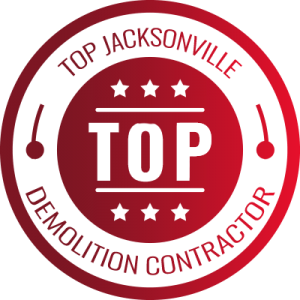



When you’re planning a mid- or high-rise demolition, the method you choose can make a huge difference. Some sites need to come down fast, while others require a slower, more controlled approach. Whether you’re clearing space for a new development or removing aging infrastructure in Jacksonville, FL, your demolition plan starts by picking the right route.
Working with an experienced industrial demolition contractor can help you make that decision. One of the biggest choices is between implosion and high-reach mechanical demolition. Each has its advantages, and depending on the structure, access, and surroundings, one option may clearly come out ahead.
Choosing Between Implosion and High-Reach Mechanical
Implosion and high-reach mechanical demolition are two of the most common methods used for taking down mid- and high-rise buildings. Both serve the same ultimate purpose, removing large structures, but how they get there is very different.
- Implosion uses strategically placed explosives to bring down a building inward on itself. This method is fast and can completely fell a structure in seconds.
- High-reach mechanical uses cranes and excavators with extended arms to carefully strip the building piece by piece from top to bottom. It is slower but more precise.
Implosion requires more setup and comes with stricter public safety measures. Shutdowns, clear zones, and highly detailed prep work are necessary. High-reach, while more incremental, often allows surrounding activity to continue and materials to be separated during takedown. It is often more straightforward to schedule and control.
The type of building and site geometry play a big role. Massive structures with limited surroundings may benefit from implosion. Smaller towers with room to operate heavy machinery often do better with high-reach tools.
When Implosion Makes More Sense
Not every building is a candidate for implosion, but when it is right, it can be effective. We usually look at structures over 12 stories tall or massive concrete and steel buildings that cannot be safely removed in sections.
- Implosion is ideal in very dense areas, like parts of downtown Jacksonville, where lifting and swinging equipment is not safe or possible.
- Buildings with reinforced cores, thick slabs, or central elevators often respond well to explosive sequencing.
- If access is limited and the surrounding space cannot allow mechanical equipment, implosion offers a way to bring the structure down vertically.
There is a lot that goes into getting an implosion approved. Permits take time. Nearby utilities must be flagged and protected. Road closures and crowd control need to be planned weeks or more before the blast. Prep work includes gutting the building of contents, mapping charges, and running safety drills. It is a heavy front-loaded process with a fast finish.
Why High-Reach Machinery is More Common
For most sites in Jacksonville and across Northeast Florida, high-reach is more practical. It works especially well for buildings under 10 stories, which is the bulk of what we see in commercial real estate here.
- It gives us greater control over the demolition process, from method, timing, to debris handling.
- Mechanical removal allows for more selective demos where only part of the building needs to go.
- It generates less dust and vibration, which is better for neighbors, tenants, and sensitive equipment nearby.
Shopping centers, office parks, and light industrial areas in Jacksonville usually offer enough space to handle equipment safely, making high-reach methods convenient. This approach also means that activities in neighboring spaces can proceed as normal, ideal for places that stay open during construction. In addition, this strategy allows for debris to be managed more effectively since materials can be sorted as the structure comes down.
We use specialized high-reach excavators with attachment options designed for both safe vertical demolition and on-site material processing for commercial buildings of all sizes. This method is reliable and allows for greater efficiency when working within the diverse environments found throughout Jacksonville, FL.
The slower pace of high-reach does not always mean longer project timelines because work can start as soon as logistics and permits are ready, without the lengthy preparations implosion needs.
What Local Site Conditions Matter Most
We always start by looking at the jobsite itself. Jacksonville’s wide streets, accessible lots, and flat surfaces give us flexibility, but even here, the details matter.
- Vibration impacts must be considered for nearby buildings, especially historic ones with fragile foundations.
- Utility setups, including underground tanks, power lines, and drainage, can dictate what type of work can be done safely.
- Weather windows also make a difference. In early fall, for example, we monitor hurricane updates and prep for quick shifts in scheduling.
- Emergency crew access and traffic rerouting often come into play, especially downtown.
Both methods require careful planning to protect surroundings and people in the area. Choosing between them depends on how all these factors align, and sometimes a combination of elements influences the final approach. The choice is shaped not just by the building’s height or age, but by its neighbors, the layout, and the city’s unique characteristics.
How an Industrial Demolition Contractor Assesses Each Project
Determining the right demolition method is not guesswork, it starts with a walkthrough. We visit the site, review existing plans if available, and visually inspect the structure. That helps us understand the materials used, the structural integrity, and what is nearby that might complicate access or impact.
As an experienced industrial demolition contractor, we look at every project holistically. That means more than just the teardown itself.
- We help line up the needed permits and handle communication with city or county officials.
- Safety planning comes first. That includes fencing, monitoring, and setting buffer areas for pedestrians or traffic.
- We coordinate with power, water, and telecom utilities to disconnect services safely and on schedule.
- We match the right crew and equipment to the job and build a plan that aligns with your construction or redevelopment goals.
We are licensed, insured, and OSHA-compliant, giving clients peace of mind when handling large-scale and technically complex demolition projects throughout Jacksonville, FL.
Sometimes that leads us to recommend implosion. Other times, high-reach is the safer, smoother path. Our expertise allows us to guide clients through these complicated decisions, offering the reassurance that all boxes have been checked before demolition ever begins.
Know Your Options Before the First Move
Different demolition projects call for different approaches. The strategy that works for one site may not be right for another just down the road. In places like Jacksonville, where both tight urban spaces and wide-open stretches exist across the city, it is good to keep every option open.
By understanding how implosion and high-reach mechanical demolition compare, you will be better prepared to plan your project. That saves time and reduces surprises down the line. With help from the right crew, you can move forward with more confidence and fewer delays.
Considering all these factors helps you make the most informed decision. Reviewing plans with an industrial demolition contractor means even challenging sites can be handled efficiently. When safety, scheduling, and budget come together successfully, clients have a smoother experience from start to finish.
FAQs
Does Jacksonville require special permits for implosions?
Yes, multiple city agencies need to review and approve implosion plans before work can begin.
Can high-reach demolition be done while nearby offices stay open?
Often yes. Mechanical demolition is quieter and easier to manage near active businesses.
What kind of buildings work best with implosion?
Large concrete or steel towers in tight areas often benefit from implosion to drop the structure vertically.
Do both methods require utility disconnects?
Yes, all utilities must be safely turned off and capped before demolition starts.
Can I switch methods after work has started?
Usually not. Each method needs specific planning and equipment, so the choice should be finalized early.
Partner with a Local Demolition Expert
Relying on a Jacksonville-based contractor with years of large-scale project experience and strict safety standards makes a difference when evaluating demolition methods. We bring local knowledge, licensed crews, and a modern equipment fleet to every mid-rise and high-rise project.
Planning a commercial teardown in Jacksonville, FL, is a big step, and choosing the right partner makes all the difference. We bring years of hands-on expertise to every job, whether your site requires detailed precision work or a rapid, safe implosion. As an experienced industrial demolition contractor, we carefully assess your building type, site access, and safety priorities to guide each decision. Our crews work closely with clients to keep timelines efficient and disruptions minimal. Reach out to Elev8 Demolition to discuss your project goals and get started today.

